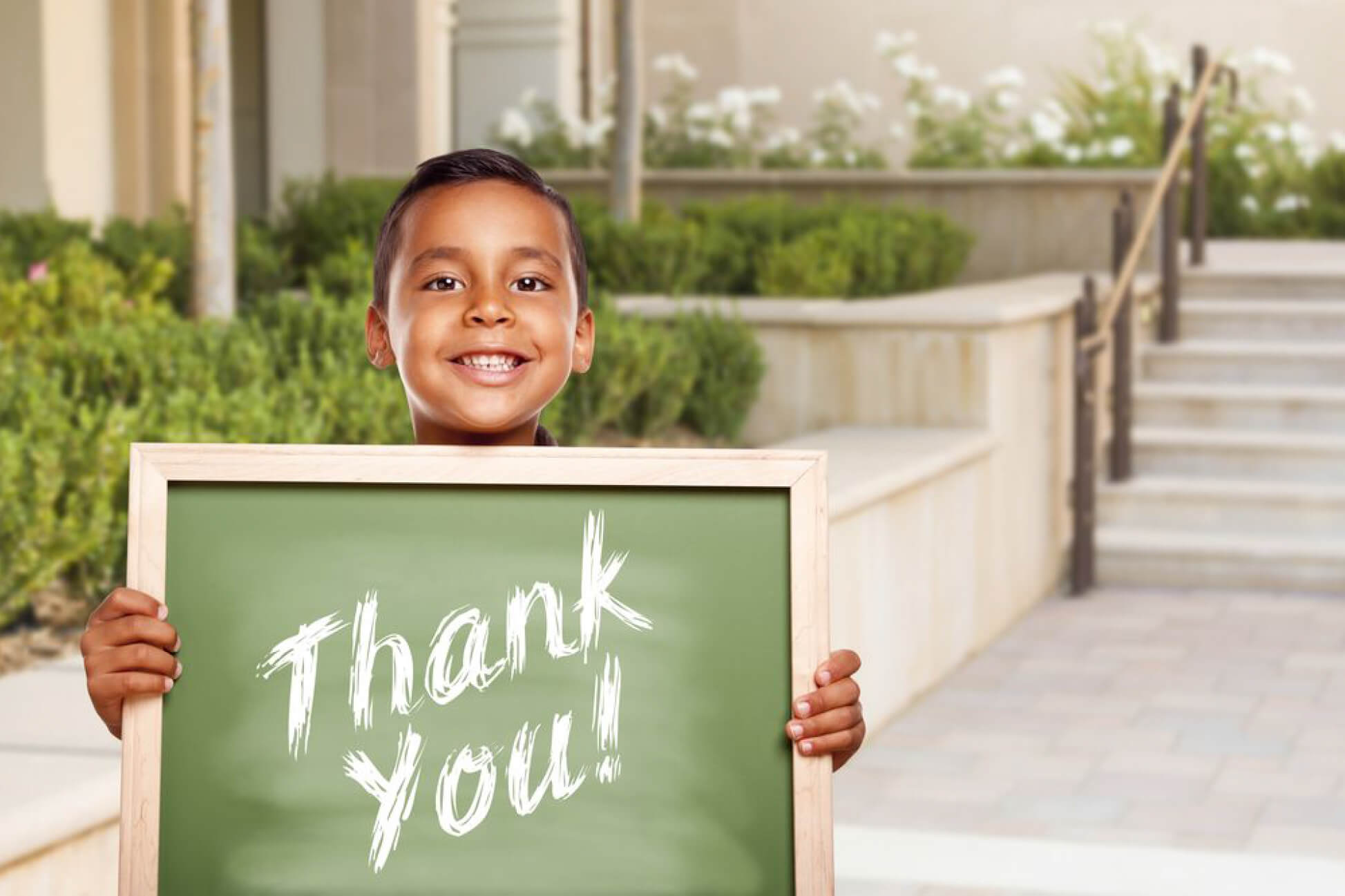According to research by our colleagues at the Greater Good Science Center at UC Berkeley, “People who practice gratitude feel considerably happier (25%) than those in a control group; they are more joyful, enthusiastic, interested, and determined.”
Do you want to see your kids instantly 25% happier? Of course you do, we all do! In some ways, the path to happiness is straightforward. Teach them to be awed, amazed, deeply appreciative of:
- What they have
- What they’ve experienced
- Who helped them along the way
- Their own individual qualities and strengths
All parents everywhere want to raise happy and kind children. But in the past several years, parents have come to our office increasingly alarmed that their parenting techniques were yielding the opposite results: dissatisfied, unhappy, entitled kids.
When we wrote our Gratitude and Kindness book, and when people heard the title (before they read the content) parents came to us and said things like, “I know! I tell my kids all the time that they should feel so fortunate for what they have!”
But hearing a polite ‘thank you’ from our kids does not mean they are truly experiencing gratitude. It simply demonstrates their ability to show politeness.
Some parents tend to assume that they need to tell their kids to be more grateful by saying things like, “Kids in third world countries don’t even have enough to eat…” But this is not the way to boost gratitude. We know, definitively, that these pep talks and guilt-inducing statements simply do not work.
We wrote our book to address these common mistakes and to make gratitude, and its benefits, achievable and accessible to families everywhere. We coach parents to lay a fertile ground for gratitude growth by thinking gratefully, speaking gratefully, and demonstrating gratitude through their actions.
Gratitude is a way of being and we encourage parents to have gratitude dialogues with their children to highlight this. A conversation about gratitude looks something like this:
- Today I’m grateful for_________ because_________.
- Today I noticed the following good things__________________(sights, sounds, pleasing scents, kind actions).
- I appreciate the following people in my life __________because of __________________.
- Things about my world that I realize I have enough of are ______________.
If you can look at gratitude in all the ways we have described, and then teach and model it to your kids, it will increase their ability to tune into and appreciate the good around them. And, they will end up happier.
So what is it about seeing the world from a lens of gratitude that makes a child happier?
- They are more readily content with their experiences.
- They are more likely to attune to what they have enough of, whether it be friends, fun times or things.
- They are less likely to dwell on negative thoughts: less likely to lament about how far they are from their goals, or to dread the effort it may take to attain their goals.
- They are more easily satisfied and able to savour the good they experience.
- They bounce back from upsets and stress quicker.
- They do better at school.
- They are sick less frequently.
- They are more likely to surround themselves with other kids who are also happier and who see the world from a brighter perspective.
- Because they are more likely to view their life as being good, they tend to have more space to see other people’s problems and can be more empathic and other-focused.
- They are more socially connected and have better friendships.
Investing in the time and care to boost gratitude in your kids is a worthwhile use of parenting resources and a sure way to raise a happier child.
Happy parenting from,
#TheDrFs
- Originally published in BLUSH Vancouver Magazine
